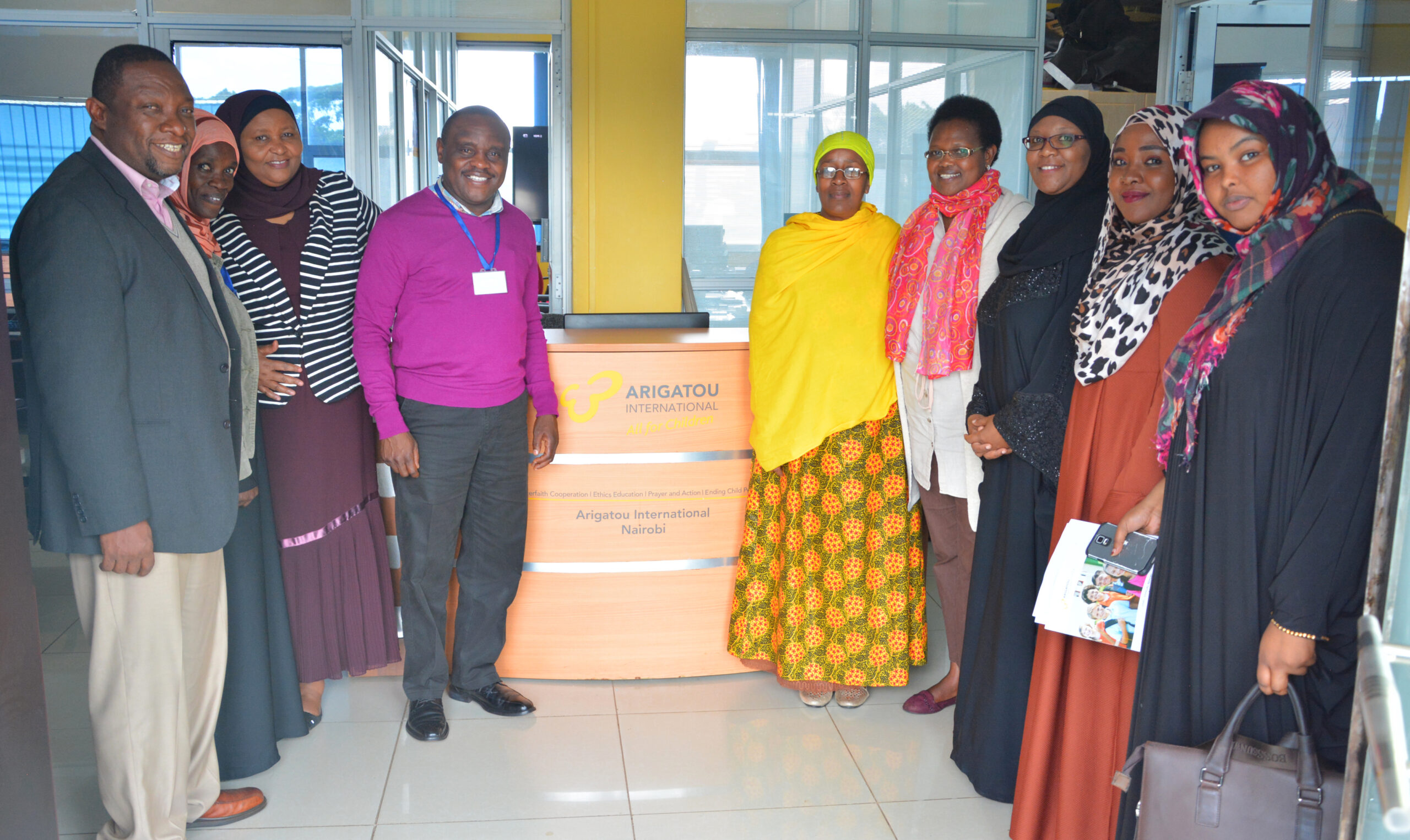
GNRC-Kenya held its annual strategic meeting on 10th November 2017 at the Arigatou International–Nairobi offices as a way to strengthen the GNRC and make plans for the coming year. With the recently concluded GNRC 5th Forum, the Secretary General of the Global Networks of Religions for Children (GNRC), Dr. Mustafa Y. Ali, shared about the successes achieved at the Forum particularly the ten commitments to end violence against children, that participants agreed to adhere to. He encouraged the GNRC members to align their work with the commitments, and to network and work together on issues such as awareness creation, training, and sharing of information to prevent violence against children.
The GNRC Network and Programs Coordinator, Dr. Dorcas Kiplagat commended the efforts of the participants in empowering children. She advised them to plan their activities across Arigatou International’s priority areas, including ending child poverty, ethics education for children and prayer and action for children. Dr. Kiplagat also drew members’ attention to the upcoming International Day of Prayer and Action for Children (DPAC) scheduled for 20th November 2017. She encouraged them to come together with other faith communities to commemorate the day, and also to talk about ending violence against children.
The GNRC Coordinator in Kenya, Sh. Ramadhan Aula, informed the participants about the planned visit to a children’s home in Kariobangi, Nairobi to commemorate DPAC. GNRC-Kenya will visit the children with gifts and offer mentorship lectures on career development, and educate participants on prevention of violence against children.
It was clear in the meeting that there is a lot that still needs to be done to end violence against children and empower the children and youth to contribute to peace and development. The participants agreed that the community through faith institutions should take a lead in ending violence against children.
“Sexual violence is a terrible act that leaves an eternal scar in a child. It is up to us to voice these problems because children themselves don’t have a voice or a capacity to end violence.” – Ms. Mariam Kibunja
“There is need to create free space for children. If we want to have an upper hand on peace building, then we need to listen to them, acknowledge their struggles and look for a positive way towards sustainable solution.” – Ms. Zam Obed, Child Life.
“We are the solution! Let us not wait for others to provide the solutions for us.” – Ustadha Batuli Nassir

